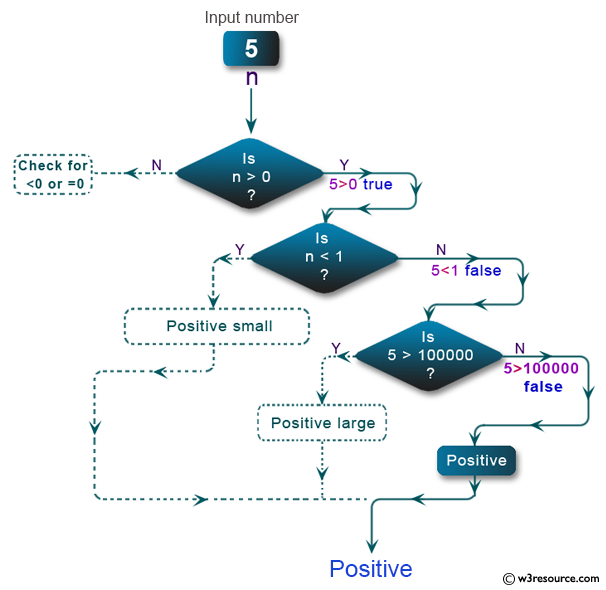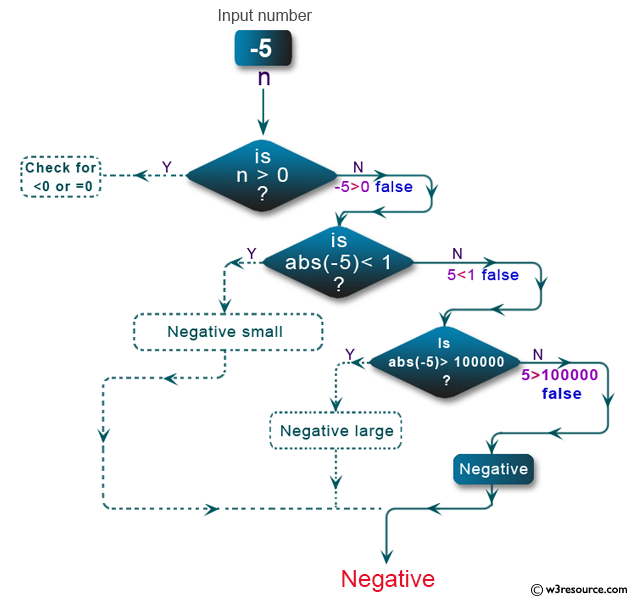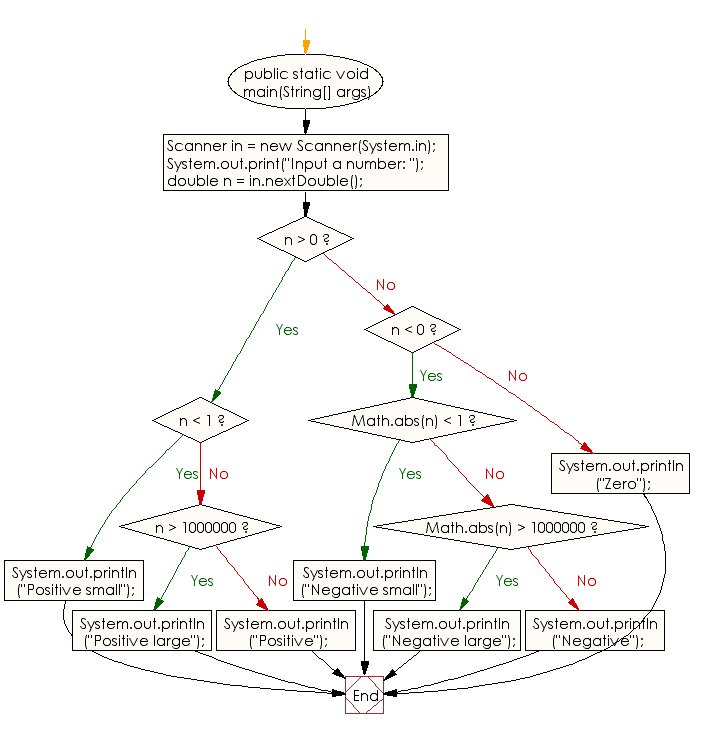Java: Reads a floating-point number and print result
Check and Describe Float (Zero, Small, Large)
Write a Java program that reads a floating-point number. If the number is zero it prints "zero", otherwise, print "positive" or "negative". Add "small" if the absolute value of the number is less than 1, or "large" if it exceeds 1,000,000.
Test Data
Input a number: -2534
Pictorial Presentation:


Sample Solution:
Java Code:
import java.util.Scanner;
public class Exercise28 {
public static void main(String[] args)
{
Scanner in = new Scanner(System.in);
System.out.print("Input a number: ");
double n = in.nextDouble();
if (n > 0)
{
if (n < 1)
{
System.out.println("Positive small");
}
else if (n > 1000000)
{
System.out.println("Positive large");
}
else
{
System.out.println("Positive");
}
}
else if (n < 0)
{
if (Math.abs(n) < 1)
{
System.out.println("Negative small");
}
else if (Math.abs(n) > 1000000)
{
System.out.println("Negative large");
}
else
{
System.out.println("Negative");
}
}
else
{
System.out.println("Zero");
}
}
}
Sample Output:
Input a number: -2534 Negative
Flowchart:

For more Practice: Solve these Related Problems:
- Write a Java program to classify a floating-point number as tiny, small, normal, large, or huge based on specified thresholds.
- Write a Java program to use nested ternary operators to describe a float as zero, positive small, or positive large (and similar for negative).
- Write a Java program to compare the absolute value of a float with given limits and output a detailed description.
- Write a Java program to check if a float is near zero using an epsilon value and then categorize it accordingly.
Go to:
PREV : Check Negative, Zero, or Positive Integer.
NEXT : Count Digits in an Integer.
Java Code Editor:
Improve this sample solution and post your code through Disqus
What is the difficulty level of this exercise?
Test your Programming skills with w3resource's quiz.
